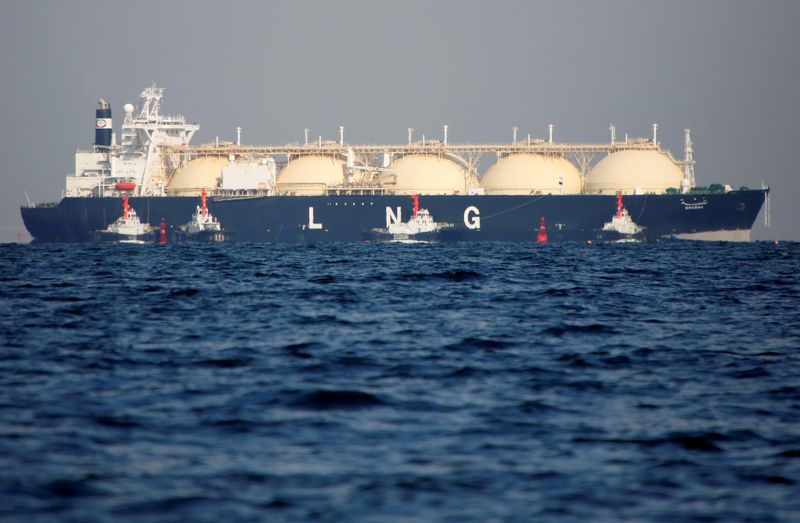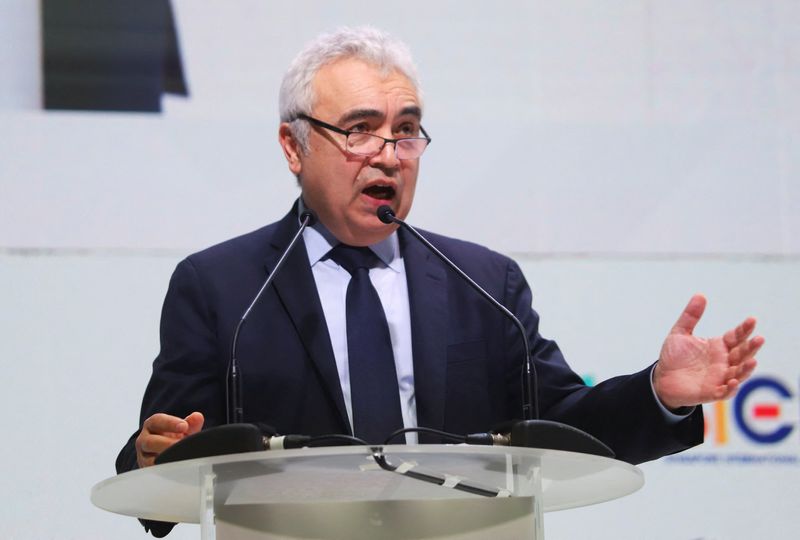By Emily Chow and Muyu Xu
SINGAPORE (Reuters) -Tightening markets for liquefied natural gas (LNG) worldwide and major oil producers cutting supply have put the world in the middle of "the first truly global energy crisis", the head of the International Energy Agency (IEA) said on Tuesday.
Rising imports of LNG to Europe amid the Ukraine crisis and a potential rebound in Chinese appetite for the fuel will tighten the market as only 20 billion cubic meters of new LNG capacity will come to market next year, IEA Executive Director Fatih Birol said during the Singapore International Energy Week.
At the same time the recent decision by the Organization of the Petroleum Exporting Countries (OPEC) and its allies, known as OPEC+, to cut 2 million barrels per day (bpd) of output is a "risky" decision as the IEA sees global oil demand growth of close to 2 million bpd this year, Birol said.
"(It is) especially risky as several economies around the world are on the brink of a recession, if that we are talking about the global recession...I found this decision really unfortunate," he said.
Soaring global prices across a number of energy sources, including oil, natural gas and coal, are hammering consumers at the same time they are already dealing with rising food and services inflation. The high prices and possibility of rationing are potentially hazardous to European consumers as they prepare to enter the Northern Hemisphere winter.
Europe may make it through this winter, though somewhat battered, if the weather remains mild, Birol said.
"Unless we will have an extremely cold and long winter, unless there will be any surprises in terms of what we have seen, for example Nordstream pipeline explosion, Europe should go through this winter with some economic and social bruises," he added.
For oil, consumption is expected to grow by 1.7 million bpd in 2023 so the world will still need Russian oil to meet demand, Birol said.
G7 nations have proposed a mechanism that would allow emerging nations to buy Russian oil but at lower prices to cap Moscow's revenues in the wake of the Ukraine war.
Birol said the scheme still has many details to iron out and will require the buy-in of major oil importing nations.
A U.S. Treasury official told Reuters last week that it is not unreasonable to believe that up to 80% to 90% of Russian oil will continue to flow outside the price cap mechanism if Moscow seeks to flout it.
"I think this is good because the world still needs Russian oil to flow into the market for now. An 80%-90% is good and encouraging level in order to meet the demand," Birol said.
While there is still a huge volume of strategic oil reserves that can be tapped during a supply disruption, another release is not currently on the agenda, he added.
ENERGY SECURITY DRIVES RENEWABLES GROWTH
The energy crisis could be a turning point for accelerating clean sources and for forming a sustainable and secured energy system, Birol said.
"Energy security is the number one driver (of the energy transition)," said Birol, as countries see energy technologies and renewables as a solution.

The IEA has revised up the forecast of renewable power capacity growth in 2022 to a 20% year-on-year increase from 8% previously, with close to 400 gigawatts of renewable capacity being added this year.
Many countries in Europe and elsewhere are accelerating the installation of renewable capacity by cutting the permitting and licensing processes to replace the Russian gas, Birol said.
